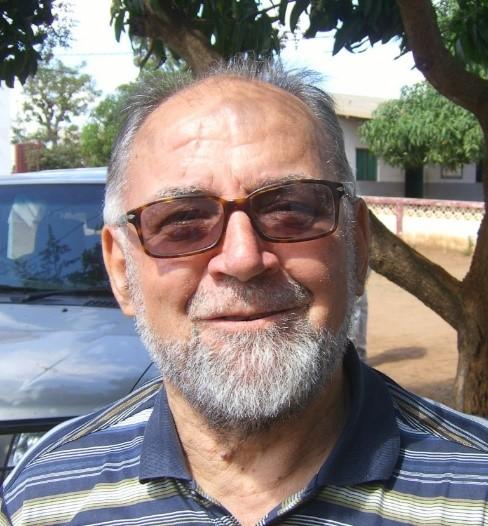Daniel Comboni
Comboni Missionaries
Institutional area
Other links
Newsletter
In Pace Christi
Cusini Firmino
The news of the death of Fr. Firmino took us all by surprise. None of us expected it and neither did he. He was recovering well from the operation he had undergone in November and was looking forward to returning to Mozambique where he had spent almost fifty years of his life. During those years, he shared the various phases of the history of that country: the fight for independence, the civil war, the coming of a new era with the peace accord, the democratic elections and the process of national reconstruction.
The last time I saw him was the weekend of 7-8 December 2019, in Milan. He was very happy to see me and asked what news I had of Mozambique, since I had visited the province recently. He was interested in everything and could not hide his great desire to return there. “Don’t even think of me staying in Milan, or even in Italy. Mozambique is my native country. I have had to wait a bit but I hope to be there for Easter”.
Fr. Firmino was born in Livigno, in Sondrio Province, on 22 October 1940. He joined the Comboni Missionaries and did his novitiate in Gozzano where he took temporary vows on September 1966. He did the scholasticate in Venegono where he took perpetual vows on 9 September 1969.
Ever since his ordination on 21 March 1970, apart from a few months spent in Portugal to learn Portuguese, Fr. Firmino always lived and worked in Mozambique. I first met him when I went there in 1984. He was then working at Memba as parish priest and superior of the community (1982-1993). A few years earlier he had reported a state of starvation in the area, possibly provoking his arrest or expulsion. We would have much to say about all those years he spent in Mozambique and his wonderful work there. I will just mention some characteristics of his that impressed me and motivated me in my missionary life.
Fr. Firmino was a man with a passion for the mission and its people. In order to evangelise better he studied the culture and learned Macua, the local language. Well identified as a Comboni Missionary, he was happy and felt realised in his missionary work, in the company of the people, the Macua, in visiting the Christian communities and in training their leaders. He was sensitive to the needs of the poorest and tried to give everyone he met a more dignified and more human life. He was a father, a brother, a friend and a companion. He was a pastor in touch with the situation of his people.
He also had a great passion for the local Church, the diocesan clergy and great respect for the bishop. For some years he was Vicar General of the diocese of Nacala and its administrator. He had a strong sense of belonging to the Church of Mozambique. Fr. Firmino gave himself completely to it and succeeded in obtaining quantities of material help to build chapels, schools and pastoral and catechetical centres. He used all the help he received form his many friends in Italy for the benefit of the Church and the people, keeping nothing for himself. His lifestyle was simple and austere.
Fr. Firmino was a joyful and happy person who lived through the difficult times of the mission in impressive peace and serenity. I am certain that this joy had its source in the personal encounter with Christ which he cultivated daily. He felt the presence of God especially in his work and in the life of the people.
Fr. Constantino Bogaio, Provincial Superior of Mozambique, in his long testimony, brings out the “old soldier” quality of Fr. Firmino, the obedient missionary, always at the ready, and a great vocations promoter. Fr Bogaio also spoke of hearing from others who knew him well, of Firmino’s smile and his simplicity: “Padre Nywo Atate” was the affectionate nickname he had been given while he was working at Anchilo Catechetical Centre, due to his ever-generous manner and the way he would counsel others. Mgr. Germano Grachane, the first bishop of the diocese of Nacala, who worked with him for many years, on hearing of his death, spoke of his friend Fr. Firmino as a good counsellor, a good Comboni, a friend of the Mozambican people, a missionary with a heart of gold for him, the diocese and for the Nacala seminarians and the seminaries, both diocesan and Comboni”.
The testimony of Fr. Firmono’s life, his joy and serenity, even in the most difficult situations he had to face, the abundant life he infused into the various missions where he lived, all have the odour of the Gospel lived deeply at the service of the Kingdom.
(Fr. Jeremias dos Santos Martins)

